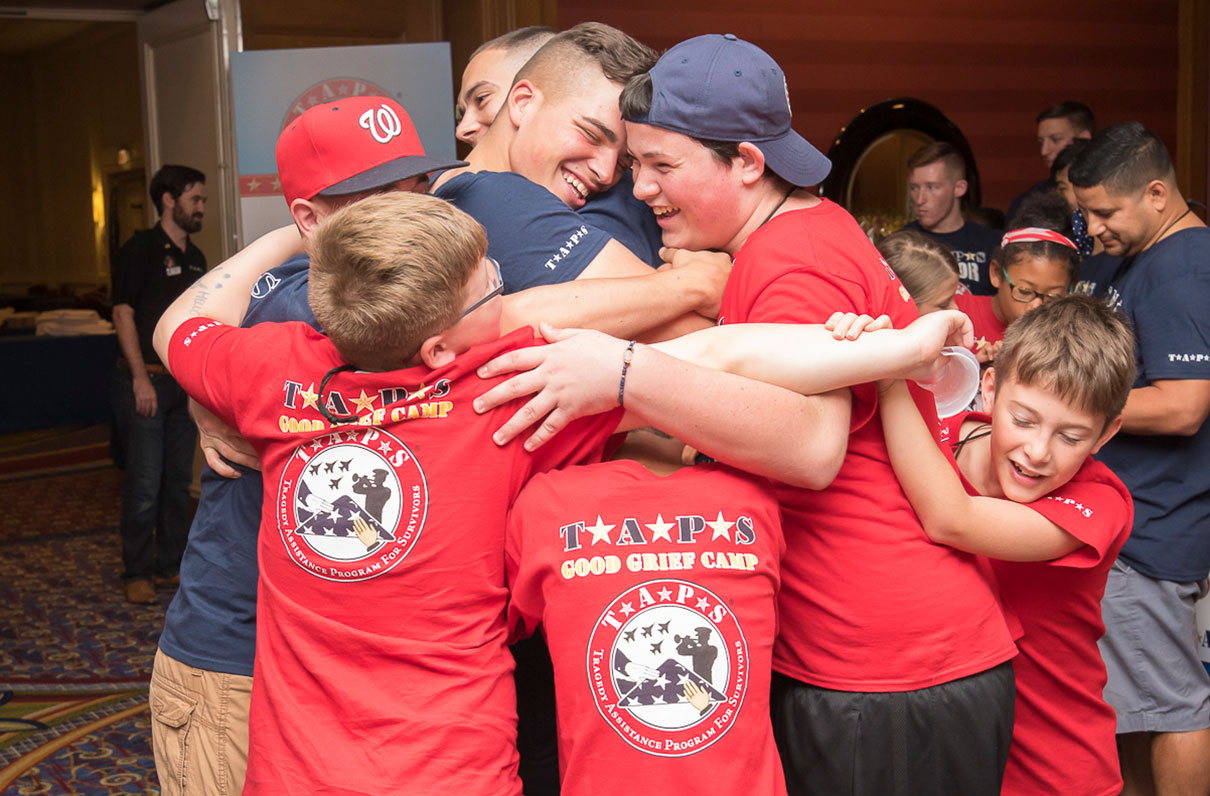This article is part of a series for Month of the Military Child about services that help kids cope with the military lifestyle. It appeared in the April 2018 issue of Military Officer magazine.
There's no one-size-fits-all approach to grief. Some kids lose a parent in combat, while others lose someone to a service-connected illness or suicide. Every loss comes with its own set of challenges, says Diana Wright, director of youth services with Tragedy Assistance Program for Survivors (TAPS).
TAPS' Good Grief Camps, held throughout the year at locations around the country, give kids of all ages a chance to meet others in their situation and learn how to manage some of the overwhelming emotions that come with grief.
“The curriculum is based on … getting to this endpoint of, 'What is my life like now, and how do I maintain my connection to my loved one by still going forward and living my life while being a legacy to them?' ” Wright says.
Hundreds of kids attend Good Grief Camps every year, which come in many forms. There are large national-level camps every year in Washington, D.C., and smaller campouts or family retreats held across the country. TAPS also hosts special seminars and camps for suicide survivors.
“Some [of those] survivors are very angry with the military as a result of the suicide,” Wright says. “Some are struggling to call their servicemember a hero because they died by suicide. Some feel their servicemember is a hero, but they hold a lot of guilt.”
Every Good Grief Camps event requires unique attention, Wright says, and they see results. One mother credited a TAPS retreat on the Appalachian Trail with saving her son's life. While grieving, the teen was hospitalized for suicidal ideation. The retreat helped the child work through grief, and the child later decided to join the military, Wright says.
She also hears from parents who say their child smiled for the first time after attending one of the camps. Having fun is one of the most important aspects of the Good Grief Camps, Wright says.
“There's a lot of healing in play,” she says. “A lot can be expressed through play and laughter that we forget as adults.”
Good Grief Camps provide tools for parents, too, so the whole family can continue working through their grief back at home. Kids attending the Good Grief Camps also are paired with an active duty mentor to remind them their connection to the military wasn't lost with their servicemember.
“It can be very problematic … [for military children] to be taken from that environment and placed in civilian communities that don't necessarily have the tools needed to help them through that transition,” Wright says.
That mentorship helps servicemembers, too, Wright says, because they have the opportunity to form lifelong relationships with the kids.
“Especially for those who've lost battle buddies, this is healing for them,” Wright says. “Part of their journey comes full circle - there's a healing component in service to families of the fallen.”
Servicemembers interested in volunteering can send an email to: mentors@taps.org.
